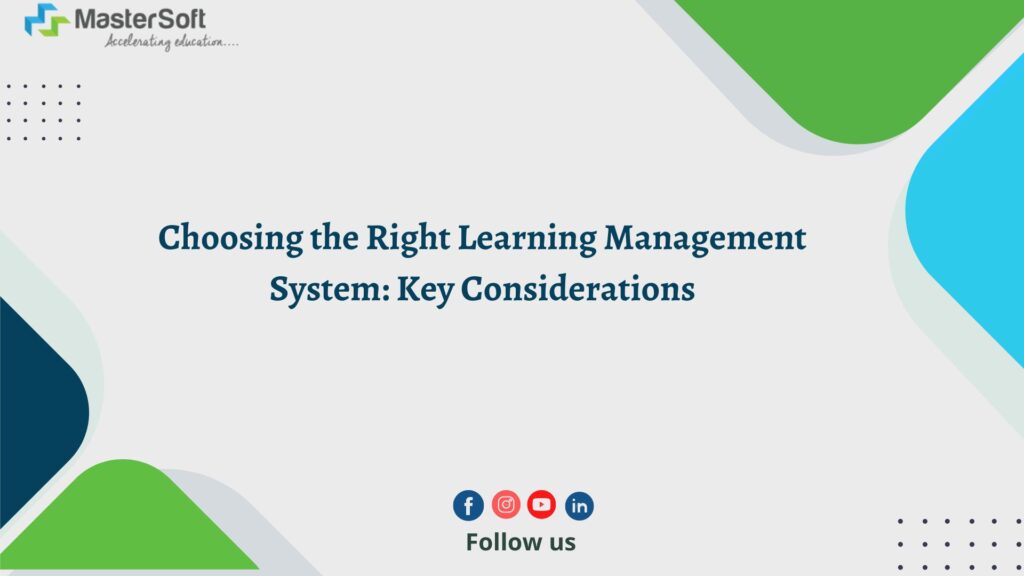When choosing the right Learning Management System (LMS), there are several key considerations to keep in mind. An LMS is a software application that helps facilitate the management, delivery, and tracking of educational courses and training programs. Here are some important factors to consider when selecting an LMS:
- Learning objectives and requirements: Start by defining your learning objectives and requirements. Consider the type of content you will be delivering, the target audience, and the specific learning outcomes you want to achieve. This will help you identify the features and functionalities you need in an LMS.
- Scalability and flexibility: Evaluate the scalability and flexibility of the LMS. Determine whether it can accommodate your current and future needs, such as supporting a growing number of users, courses, and content formats. Look for an LMS that can adapt to different learning approaches and technologies.
- User experience: Consider the user experience for both administrators and learners. The LMS should have an intuitive interface that is easy to navigate and use. It should provide a seamless learning experience, allowing learners to access courses and resources effortlessly. Administrators should have efficient tools for course creation, content management, and user management.
- Content management capabilities: Assess the LMS’s content management capabilities. Look for features such as content authoring tools, multimedia support, version control, and the ability to organize and categorize content effectively. Consider whether the LMS supports various content formats like documents, videos, SCORM packages, quizzes, and assessments.
- Collaboration and communication features: Determine whether the LMS provides features for collaboration and communication among learners and instructors. Look for discussion forums, chat functionality, email notifications, and integration with communication tools like video conferencing platforms or messaging apps.
- Assessment and tracking: Evaluate the assessment and tracking capabilities of the LMS. It should support various types of assessments, including quizzes, assignments, and exams. Consider whether the LMS offers customizable grading options, automated assessments, and detailed tracking and reporting features to monitor learner progress and performance.
- Integration capabilities: Check if the LMS Software can integrate with other systems and tools you currently use or plan to use, such as HR systems, CRM software, or third-party content providers. Integration capabilities can enhance the overall functionality and streamline workflows.
- Security and data privacy: Ensure the LMS prioritizes security and data privacy. Look for features such as user authentication, data encryption, regular backups, and compliance with relevant data protection regulations like GDPR or HIPAA, depending on your requirements.
- Support and training: Consider the level of support and training provided by the LMS vendor. Evaluate their customer support channels, documentation, training resources, and user communities. A reliable vendor should offer technical assistance, regular updates, and resources to help you maximize the potential of the LMS.
- Cost and ROI: Finally, assess the cost and return on investment (ROI) of the LMS. Consider both the upfront costs and ongoing expenses, such as licensing fees, maintenance costs, and potential customization or integration expenses. Compare different LMS options to determine the one that offers the best value for your budget.
By carefully considering these key factors, you can select an LMS that aligns with your organization’s learning goals, supports efficient course delivery, and enhances the learning experience for your audience.


